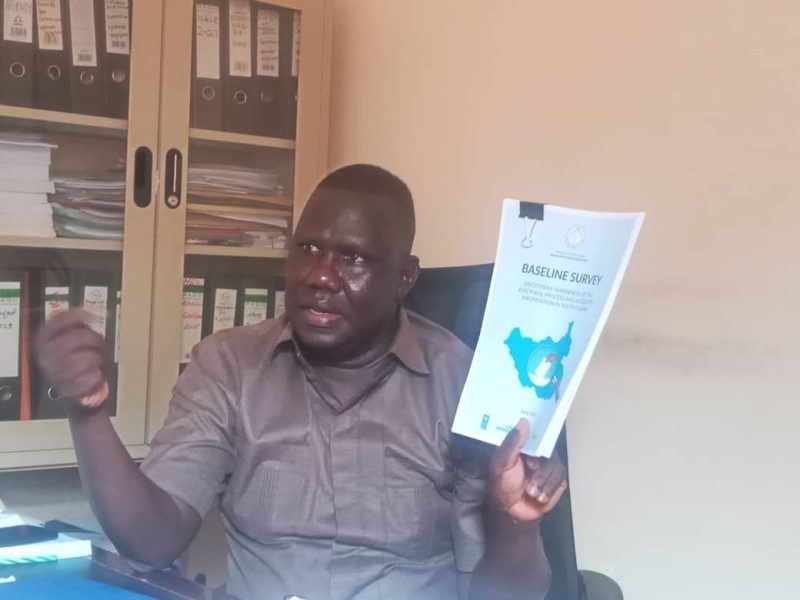
As South Sudan gears up for its first democratic elections, the National Election Commission (NEC) has emphasized that the success of the 2026 elections hinges on key decisions from political parties regarding the permanent constitution and the population census.
During a media briefing on Friday, Gabriel Bol Deng, the Secretary of the NEC, explained that the future of the elections will depend on how political parties address the status of both the constitution and the census.
He urged parties to the 2018 peace agreement to cooperate and reach a consensus.
“NEC is ready to conduct elections in December 2026,” Bol stated, “but there are key decisions that need to be made.”
Bol outlined two critical factors: First, if the political parties agree to delink the population census from the elections, it should not serve as a condition for holding the elections.
He noted that, according to the South Sudan Bureau of Statistics, conducting a proper census would take about 14 months.
Second, if the parties decide to separate the constitution-making process from the election timeline, which requires approximately 18 months, it could pave the way for the elections to take place in 2026.
He stated that if these two activities are delinked from being conditions for the elections, then conducting the elections is possible.
Bol indicated that the NEC is ready to move forward, stating, “We still have about 16 to 17 months, civic education needs three months, and registration another three months. Within six months, we can be done.”
He emphasized that civic education, registration, and the declaration of candidates are essential for a successful election.
He also called on the government and partners to provide necessary funding to support the commission’s preparations.
As mandated by the Constitution and the National Elections Act of 2012 (as amended), the NEC is solely responsible for conducting elections.
George Lemi Yata, spokesperson for the NEC, added that the commission has trained facilitators to conduct various training sessions, especially at the state level.
With the support of partners, the commission has established new structures and acquired equipment across the country.
Lemi reiterated the NEC’s commitment to ensuring that all necessary preparations for the 2026 elections are in place, stating, “With the current progress made by the commission, elections are indeed possible.”
Since gaining independence in 2011, South Sudan has faced numerous challenges on its journey toward democratic elections.
The 2018 Revitalized Peace Agreement mandated that elections be held after the transitional period, which has now been extended to December 2026.
However, ongoing political instability, inadequate infrastructure, and limited resources continue to pose significant obstacles.
The NEC is tasked with overseeing the electoral process and implementing reforms to ensure transparency, fairness, and inclusivity in the upcoming elections.

